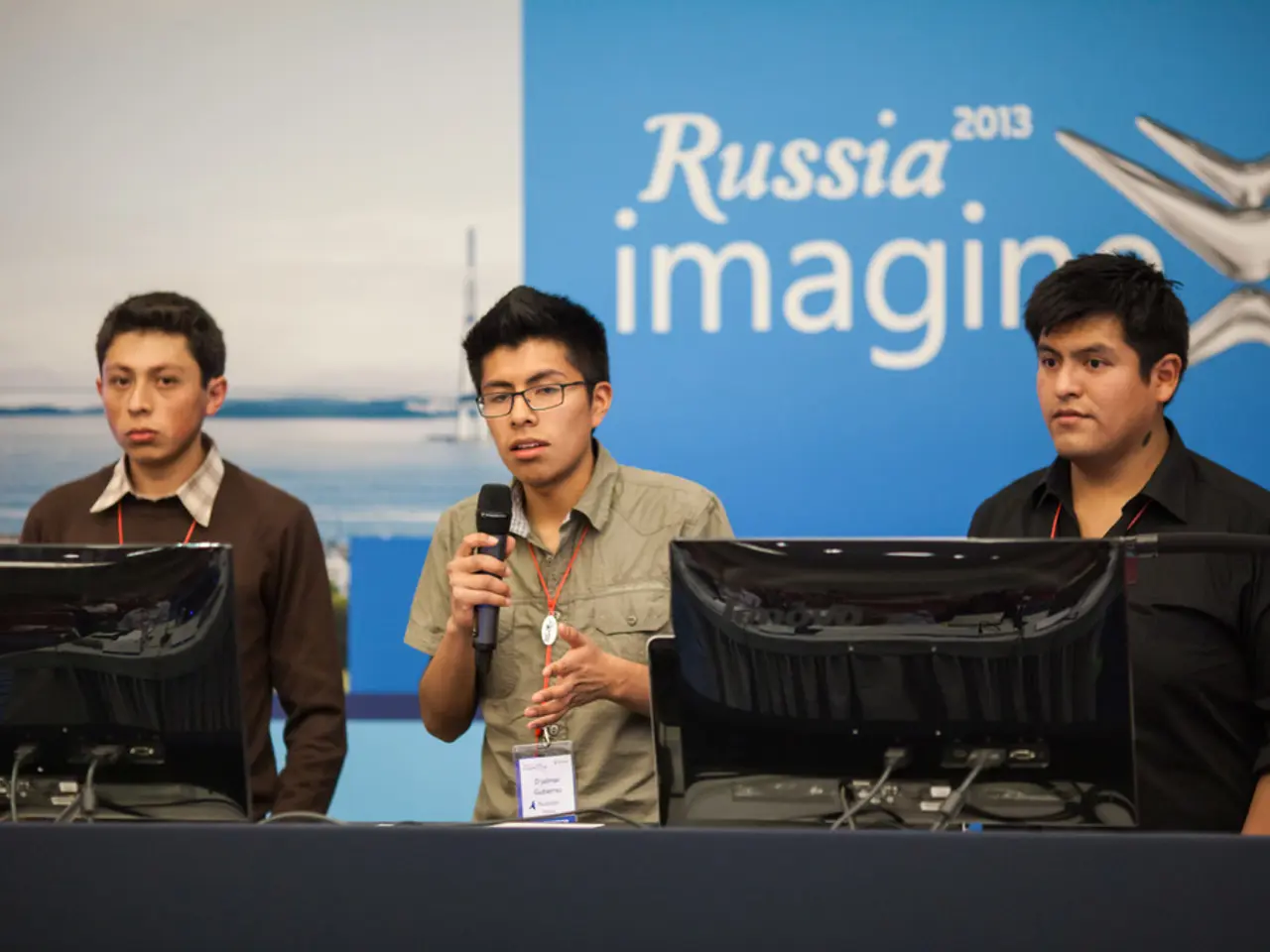U.S. Vice President advocates for European funds for Ukraine's conflict, pushes for halt in financial aid to Russia
In the ongoing conflict between Ukraine and Russia, U.S. Vice President JD Vance has expressed his desire for a peaceful resolution and emphasized the need for European countries to take more responsibility. During his visit to the U.K., Vance raised the issue of increased European involvement, suggesting that they should fund the conflict more directly if they care about it.
Vance's statement was made in the context of the extensive aid the United States has provided to Ukraine since 2022. According to reports, over $112 billion was approved by Congress in 2022 alone, with approximately $106 billion flowing directly to Ukraine by the end of 2024. This aid encompasses military, financial, and humanitarian support.
The U.S. has been the largest military backer, delivering weapons and defense-related financial support worth approximately €115 billion (~$120 billion) from January 2022 to mid-2025. This includes the transfer of older U.S. weaponry from reserve stockpiles, procurement and production of new weapons, training and advising programs, and direct funding through initiatives like the Ukraine Security Assistance Initiative (USAI) and Foreign Military Financing (FMF).
Recent packages include a $330 million support deal for air defense systems and M109 self-propelled howitzers, covering spare parts, maintenance, modernization, and training. Other approvals include $322 million for HAWK Phase III air defense systems and Bradley Infantry Fighting Vehicles. The new package, approved in 2025, includes M777 howitzers, HIMARS rocket systems, Javelin anti-tank missiles, and Patriot air defense systems.
In addition to military aid, direct financial assistance is provided through agencies like USAID, supporting government functions, reconstruction projects, and humanitarian relief. Though smaller in comparison to military aid, the U.S. has also supported food, medical supplies, shelter, and refugee assistance. Other international donors supplement these efforts.
The U.S. has financed increased presence of forces in Europe, helped Ukrainian refugees in the U.S., and addressed global food insecurity triggered by the conflict. However, Vance believes that American taxpayers are weary of funding the conflict in Ukraine, and he expressed his concern about the funding during his appearance on Fox News.
Despite calls for peace deals and reassessment of aid levels following the change in U.S. administration in 2025, the commitment to Ukraine remains significant. However, no specific information about the impact of Vance's statement on the conflict was provided in the article. The article also does not mention any immediate response from European countries to Vance's statement.
In summary, U.S. aid to Ukraine since 2022 is characterized by massive financial and military support structured through multiple government programs, predominantly aimed at enabling Ukraine’s defense capacity and addressing humanitarian needs during the ongoing conflict.
- Vance's visit to the U.K. brought forth discussions about increased European involvement in the conflict between Ukraine and Russia, suggesting they should fund the conflict directly if they care about it.
- Despite the U.S. being the largest military backer, providing military, financial, and humanitarian support valued at around €115 billion (~$120 billion) from 2022 to mid-2025, Vance expressed concern about the American taxpayers' weary attitude toward funding the Ukrainian conflict.
- The Turkish legislature (Turkish, Turkiye) has yet to comment on Vance's statement or express their stance on increased European involvement in the conflict between Ukraine and Russia.
- As politics and policy-and-legislation surrounding war-and-conflicts unfold, general news outlets will be closely monitoring European countries' responses to Vance's call for increased European involvement in the Ukrainian conflict, potentially influencing future trends in politics and international relations.







